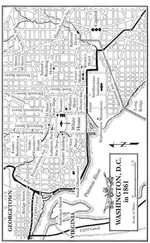John Ashton - Gossip in the First Decade of Victoria's Reign
Здесь есть возможность читать онлайн «John Ashton - Gossip in the First Decade of Victoria's Reign» — ознакомительный отрывок электронной книги совершенно бесплатно, а после прочтения отрывка купить полную версию. В некоторых случаях можно слушать аудио, скачать через торрент в формате fb2 и присутствует краткое содержание. ISBN: , Издательство: Иностранный паблик, Жанр: foreign_antique, foreign_prose, на английском языке. Описание произведения, (предисловие) а так же отзывы посетителей доступны на портале библиотеки ЛибКат.
- Название:Gossip in the First Decade of Victoria's Reign
- Автор:
- Издательство:Иностранный паблик
- Жанр:
- Год:неизвестен
- ISBN:http://www.gutenberg.org/ebooks/30665
- Рейтинг книги:3 / 5. Голосов: 1
-
Избранное:Добавить в избранное
- Отзывы:
-
Ваша оценка:
- 60
- 1
- 2
- 3
- 4
- 5
Gossip in the First Decade of Victoria's Reign: краткое содержание, описание и аннотация
Предлагаем к чтению аннотацию, описание, краткое содержание или предисловие (зависит от того, что написал сам автор книги «Gossip in the First Decade of Victoria's Reign»). Если вы не нашли необходимую информацию о книге — напишите в комментариях, мы постараемся отыскать её.
Gossip in the First Decade of Victoria's Reign — читать онлайн ознакомительный отрывок
Ниже представлен текст книги, разбитый по страницам. Система сохранения места последней прочитанной страницы, позволяет с удобством читать онлайн бесплатно книгу «Gossip in the First Decade of Victoria's Reign», без необходимости каждый раз заново искать на чём Вы остановились. Поставьте закладку, и сможете в любой момент перейти на страницу, на которой закончили чтение.
Интервал:
Закладка:
CHAPTER III
Destruction of Royal Exchange – Sale of the salvage – Spring-heeled Jack and his pranks – Lord John Russell’s hat.
As a sad pendant to the Civic festivities at the close of 1837 comes the destruction by fire of the Royal Exchange on the night of the 10th of January following.
It was first noticed a little after 10 p.m., when flames were observed in Lloyd’s Coffee Room in the north-east corner of the building, opposite the Bank, the firemen of which establishment were soon on the spot, as well as many other of the metropolitan engines. But, before any water could be thrown upon the building, it was necessary to thaw the hose and works of the engines by pouring hot water upon them, as the frost was so very severe; so that, by 11 p.m., all Lloyd’s was a mass of flame. Nothing could be done to stop the conflagration, it having got too great a hold, and great fears were entertained that it would spread to the Bank and surrounding buildings, the which, however, was fortunately prevented. The Lord Mayor was present, and a large body of soldiers from the Tower assisted the Police in keeping the crowd away from the immediate scene.
It must have been a magnificent sight, and somewhat curious, for amidst the roar of the flames, and until the chiming apparatus was destroyed, and the bells dropped one by one, the chimes went on pealing “There’s nae luck about the house,” 2 2 It is said that this was the last chime rung.
“Life let us cherish,” and “God save the Queen.” The fire was not completely got under until noon the next day, but, practically, the building was destroyed by 5 am., and, so bright was the conflagration, that it was visible at Windsor – twenty-four miles off, and at Theydon, in Essex, a distance of eighteen miles; whilst from the heights of Surrey on the south, and Highgate and Hampstead on the north, the progress of the fire was watched by crowds of people.
The following account of the Exchange after the fire is taken from the Times of 13 Jan.:
“Yesterday afternoon the ruins of the Exchange were sufficiently cooled to allow the firemen and a party of gentlemen, amongst whom we noticed the Lord Mayor, Mr. Alderman Copeland, several members of the Gresham Committee, and other persons connected with the mercantile interest, to inspect them. In consequence of the loose fragments of stone work belonging to the balustrades and ornamental parts of the building being covered over with ice, the difficulty of walking over the ruins was very great, and the chief magistrate fell more than once, receiving sundry bumps. The lofty chimnies standing appeared to be in such a dangerous condition, that they were hauled down with ropes, to prevent their falling on the people below. The iron chests belonging to the Royal Exchange Assurance Company could be distinctly seen, from the area, inserted in the walls. Ladders were raised, and they were opened, when it was discovered that their contents, consisting of deeds and other papers connected with the Company and their insurances, were uninjured. This afforded much satisfaction to the directors. Another iron safe, belonging to Mr. Hathway, whose office, under the tower, was consumed, which was also in a recess in the wall, was opened at the same time, and a considerable sum in francs and bank-notes was taken out.
“The walls of the west wing of the building, which seemed to bulge outward, were shored up in the afternoon, and they are not, now, likely to fall. Cornhill presented a most desolate appearance, the shops, from Finch Lane to the termination of the street near the Mansion House, were all closed, and the place presented a deserted and desolated appearance; which, contrasted with the bustle hitherto observed during business hours, and the sight of the ruins, forced very unpleasant reflections on the mind. Barriers were placed at the Mansion House end of Cornhill, and across that part of the street between Finch and Birchin Lanes, and no person was allowed to pass except the firemen and persons on business. All the avenues leading to Cornhill were also blocked up in like manner; and, at each barrier, police officers and ward constables were placed to prevent people passing. Various schemes were devised, by numerous individuals, to pass these barriers, and sums were, occasionally, offered to the police to be allowed to visit the ruins, but without effect. The City police kept the thieves away by their presence and activity, and the conduct of the people was, yesterday, very quiet, forming a contrast with the disorder got up by the swell mob on Thursday last. Those who viewed the ruins at a distance appeared to wear an air of melancholy, and no fire has occurred, for centuries, which has caused more universal regret.
“On searching the ruins under the Lord Mayor’s Court Office, the great City seal was picked up, with two bags, containing £200 in gold, uninjured. On this discovery being communicated to the Lord Mayor and Aldermen, it caused much gratification, it having been rumoured that the Corporation would lose their Charter by the loss of the seal, but we did not hear it explained how this could be.
“Owing to the great body of fire underneath the ruins at the north-east angle of the Exchange, it was impossible for the firemen to ascertain, until a late hour, whether any injury had been done to Lloyd’s books, which were deposited in a large iron safe inserted in the wall. Two engines had been playing on it during the latter portion of the day. In the presence of several of the Committee it was opened, when it was discovered that the fire had reached the books, and partially consumed them. In the drawers were cheques on the Bank of England to a large amount, and also Bank of England notes to the amount of, it is said, £2,560. The notes were reduced to a cinder, and, on the drawers being opened, the air rushing in on the tender fragments blew them over the Exchange. They were, however, very carefully collected, and the cinders of the notes were, with much trouble and caution, put into a tin case, which was taken to the Bank, and the words ‘Bank of England,’ with the numbers and dates, were distinctly traced. The amount will, in consequence, be paid to the owners. From what information could be obtained from the gentlemen who took possession of the box, and who were understood to be underwriters, it was the usual custom of the secretary not to leave any money or notes in the safe, but to deposit the money in the Bank, which was done on the evening the fire took place. The money and notes above mentioned, and which were found in the safe, belonged to a subscriber who, on the afternoon of Wednesday, asked permission to deposit his money in the safe until the next day, which was acceded to by the secretary. Some idea may be formed of his state of mind on arriving at the Exchange on the following morning, to see it on fire, and he was in a state of distraction until the finding of the cinders of the notes yesterday, which has, in some measure, calmed his feelings. The underwriters are severe sufferers, having left sums of money, to a large amount, in their desks, which, no doubt, will never be recovered.
“During the confusion on the discovery of the fire, in removing some books from a room in the north-east corner, in addition to £500 in Bank of England notes, which were taken to St. Michael’s Church, twenty sovereigns, in a bag, were thrown out of the windows. The bag broke, and the sovereigns rolled about the pavement; they were all picked up by the mob, who appropriated them to their own use.
“It is firmly believed that the overheating of the stoves caused the disaster which the nation has now to deplore. Wednesday was an exceedingly cold day, and large fires had been kept up from morning till night in the building. There is no doubt the fire had been spreading, to some extent, in Lloyd’s rooms, long before it was seen in the street. Some few months back, two watchmen were on the premises all night, but, on the miserable plea of economy, they were discharged, and the sacrifice of one of the finest buildings in the Kingdom has been the consequence. We believe that most of our cathedrals and large public buildings are left without watchmen during the night, and we hope that the fate of the Royal Exchange will bring about a change in this respect.”
Читать дальшеИнтервал:
Закладка:
Похожие книги на «Gossip in the First Decade of Victoria's Reign»
Представляем Вашему вниманию похожие книги на «Gossip in the First Decade of Victoria's Reign» списком для выбора. Мы отобрали схожую по названию и смыслу литературу в надежде предоставить читателям больше вариантов отыскать новые, интересные, ещё непрочитанные произведения.
Обсуждение, отзывы о книге «Gossip in the First Decade of Victoria's Reign» и просто собственные мнения читателей. Оставьте ваши комментарии, напишите, что Вы думаете о произведении, его смысле или главных героях. Укажите что конкретно понравилось, а что нет, и почему Вы так считаете.












